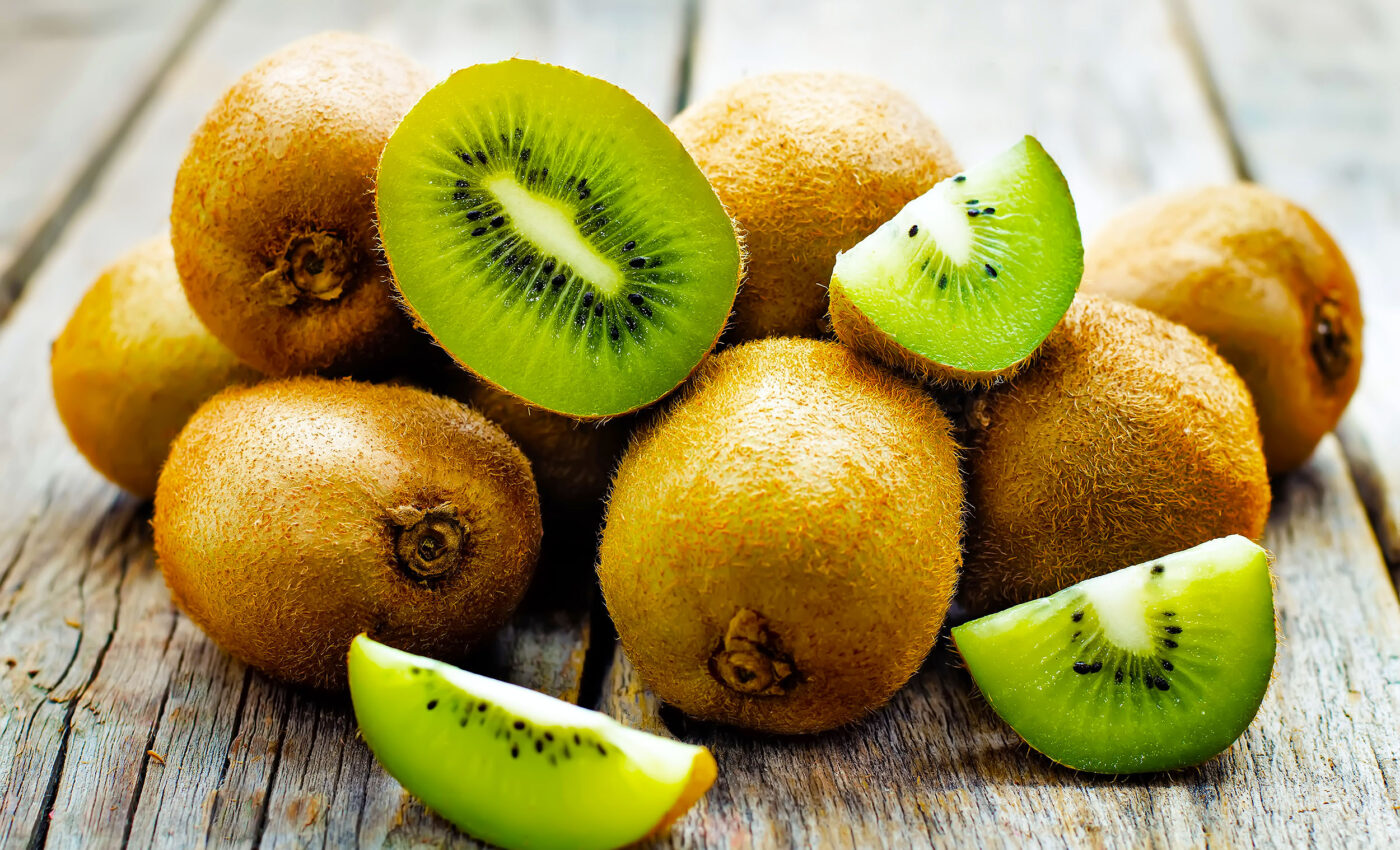
Eating kiwifruit every day keeps the doctor away and improves mental health very quickly
In the realm of mental well-being, a fascinating study by the University of Otago has uncovered the rapid mood-enhancing properties of a seemingly ordinary and furry fruit – the kiwifruit.
This research highlights how quickly the effects of kiwifruit consumption can manifest, offering a new perspective on dietary influences on mood.
At the heart of this study is the role of vitamin C, long associated with not only physical health but also mental vitality.
Kiwifruit vs. vitamin C supplements
While its benefits in improving mood and reducing depression are known, the swift impact of vitamin C-rich foods and supplements on mood upliftment has not been extensively explored until now.
The research team, led by Professor Tamlin Conner of the Department of Psychology and Dr. Ben Fletcher, embarked on an 8-week dietary intervention involving 155 adults with low vitamin C levels.
These participants were divided into three groups, receiving either a vitamin C supplement, a placebo, or two kiwifruits daily.
Their experiences of vitality, mood, flourishing, sleep quality and quantity, and physical activity were meticulously tracked through smartphone surveys.
Rapid benefits of whole foods
Remarkably, the study found that consumption of kiwifruit led to an improvement in mood and vitality within just four days, with the peak effects observed around the 14-16 day mark.
In contrast, vitamin C supplements showed a more gradual improvement, notable only up to day 12. This rapid enhancement in mood and well-being underscores the potential of whole foods, like kiwifruit, in offering synergistic health benefits beyond isolated supplements.
Professor Conner emphasizes the practical implications of these findings, stating, “It’s great for people to know that small changes in their diet, like adding kiwifruit, could make a difference in how they feel every day.”
Fresh perspective on diet and mental health
This sentiment is echoed by Dr. Fletcher, who notes that even participants with relatively good mental health reported benefits from the kiwifruit or vitamin C interventions.
Dr. Fletcher further highlights the study’s contribution to understanding the daily nuances of diet and mental health.
“This helps us see that what we eat can have a relatively fast impact on how we feel. Our participants had relatively good mental health to begin with so had little room for improvement, but still reported the benefits of kiwifruit or vitamin C interventions,” he remarks.
“We encourage a holistic approach to nutrition and well-being, incorporating various nutrient-rich foods into your diet,” Dr. Fletcher concludes.
Harnessing the power of kiwifruit
The study promotes the holistic approach to nutrition and well-being, and also introduces a novel method in nutritional research through the use of intensive smartphone surveys.
This approach offers real-time insights into mood-related changes.
“The use of intensive smartphone surveys offers a real-time understanding of the day-to-day changes in mood-related outcomes,” said Conner.
In summary, the University of Otago study presents compelling evidence for the mood-boosting properties of kiwifruit.
It encourages a more holistic approach to dietary choices, emphasizing the importance of incorporating a variety of nutrient-rich foods for overall mental well-being.
This research expands our understanding of the relationship between diet and mood, while providing a simple, accessible way for individuals to support their mental health.
More about kiwifruit
As discussed above, kiwifruit, often simply called kiwi, stands out as a nutritional powerhouse in the fruit world.
Originating from China, this small, fuzzy fruit has journeyed across the globe, gaining popularity for its unique taste and impressive health benefits.
Vitamins and minerals
At the core of kiwifruit’s appeal is its rich vitamin C content, which surpasses that of oranges. Just one kiwi can provide your daily recommended intake of this essential nutrient.
Vitamin C boosts your immune system, enhances skin health, and even plays a critical role in iron absorption.
But the benefits of kiwifruit don’t stop there. It’s a fantastic source of dietary fiber, aiding in digestion and maintaining a healthy gut. The fiber in kiwi also contributes to heart health by reducing cholesterol levels.
Kiwifruit also packs a variety of other vitamins and minerals, including vitamin K, vitamin E, and potassium. These nutrients support bone health, prevent blood clotting, and regulate blood pressure, respectively.
The fruit’s low-calorie profile, combined with its high nutrient and fiber content, makes it an ideal snack for those looking to maintain or lose weight.
Its natural sweetness and unique flavor make it a delightful addition to salads, smoothies, or as a standalone treat.
Kiwifruit is good for the mind, body and soul
Additionally, kiwifruit contains antioxidants like carotenoids and flavonoids, which combat oxidative stress and may reduce the risk of chronic diseases such as heart disease and cancer.
What sets kiwifruit apart, however, is its potential impact on sleep quality. Research suggests that its high levels of antioxidants and serotonin may help improve both sleep duration and quality.
In summary, kiwifruit is a nutritional gem. With its wide range of health benefits, from boosting immunity to improving sleep, it’s no wonder kiwifruit has earned its reputation as a superfruit.
Next time you’re looking for a healthy, refreshing snack, reach for a kiwi!
The full study was published in the British Journal of Nutrition.
—–
Like what you read? Subscribe to our newsletter for engaging articles, exclusive content, and the latest updates.
—–
Check us out on EarthSnap, a free app brought to you by Eric Ralls and Earth.com.
—–













